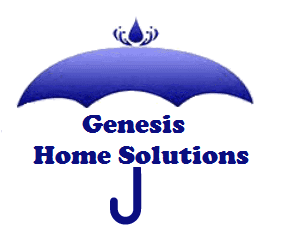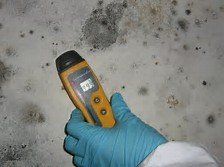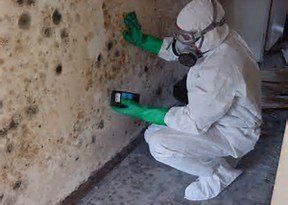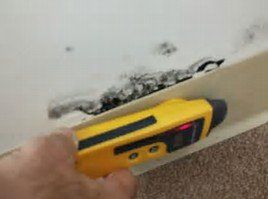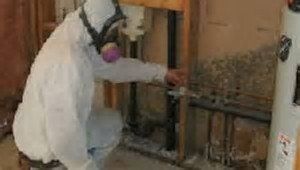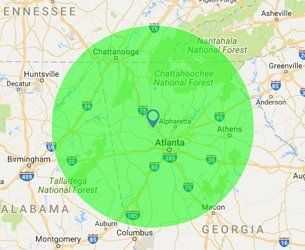Supporting copy for the Request Service
call out button.
Property Management & Landlords Mold Inspection
ATTENTION PROPERTY MANAGERS & LANDLORDS
Reasons for Periodic Mold Inspections
Landlords across the Southeast are getting a bitter lesson in the realties of how costly and aggravating even a minor mold problem can be.
It is widely known that the courts are loaded with mold related lawsuits, and that they are increasing dramatically. In many cities, lawyers aggressively solicit tenant mold lawsuits in numerous ways. In the Atlanta area, you’ll see attorney ads targeting tenants on television, in newspapers, through social media (many times in multiple languages) too often. When one tenant thinks they have mold, they will then spread the word to other tenants launching a mini-epidemic of usually frivolous complaints.
Since the insurance industry eliminated mold coverage, the only viable solution that makes any sense is a self-insuring proactive inspection program with periodic water and certified mold inspections.
More and more property management companies and multi-unit owners are contracting with professional certified mold inspection firms, who have advanced technical knowledge and experience in these areas.
These inspections involve more than a simple walk-through. In addition to checking the normal items typically inspected, a certified inspector examines the following:
Interior room; Ceilings, walls, windows, doors, and floors for any evidence of water intrusions or mold.
All plumbing outlets; In kitchens, bathrooms, laundry rooms, wet bars, or any area where water lines or drain lines exist.
The condition of tub and shower enclosures, sinks, cabinets, conditions of tile, tile grout, caulking, etc.
Examination of the exterior of the building, poor landscaping, exterior walls for areas where water can enter, inadequate sub-floor ventilation, improper placement and direction of sprinklers, overwatering and more.
Lifestyle practices and living condition of the tenant.
The inspection should include the use of electronic devises such as moisture meters and thermal imaging to locate moisture not visible to the naked eye. When a problem is discovered, a more detailed inspection will be recommended, after which the inspection company can consult the landlord or management company during the next phase.
7 Reasons for Periodic Water Intrusion and Mold Inspections
- Dramatically reduces, and in many cases eliminates most water intrusion and mold problems that can result in extreme expense, liability and aggravation.
- Establishes a track record of due diligence, thus reducing many elements of potential liability.
- Minimizes damages and reduces potential environmental health threats to tenants.
- Reduces water damage and mold problems that can significantly reduce property values.
- Observation and documentation to evaluate and record the cause and responsible party for a water intrusion or mold problem.
- The independent certified inspector acts as the consultant and representative serving the best interests of the landlord.
- Provides inspection data supported by digital photos, documenting an ongoing time-line of events and activities serving as evidence against legal actions.
Solution?
There is no magic solution to a water intrusion or mold problem. No matter how many inspections are done, leaks and water intrusions are going to occur.
However, having a more advanced inspection plan with a qualified inspection firm can serve as a last line of defense against the perils of mold, drastically reduce damage and liabilities.
Unfortunately, there are only a few companies that actually specialize in this unique service. The inspectors expertise should not be limited to mold inspection techniques, but the inspector must be very knowledgeable in the actual cause and cure for the water intrusion problem that caused the mold in the first place, otherwise the inspection has limited value. Those mold inspectors with a waterproofing, home inspection, or construction background are more likely to be qualified.
The more evolved companies that do specialize in this type of inspection have learned that wearing uniforms and driving marked vehicles with references to “Mold” only promotes a mold scare among tenants. Many of us have seen that this can cause a snowball effect, that can lead to a rash of usually frivolous complaints that would otherwise never had happened.
Fees for the service may vary based on the size and number of units to be inspected and the activities that are to be performed. Typical fees run from $60.00 to $80.00 per unit which includes the exterior, any testing or sampling is extra. For an average 10-unit building, $600.00 to $800.00 per year is a very inexpensive premium to pay for a self-insuring activity that can save unlimited headaches. Home rental fees are based on type and size of home.
Call Genesis Home Solution at 770-627-4410 or 678-738-7006 or go to:
Call
Genesis Home Solution
at
770-627-4410 or
678-738-7006
Quick Links
Contact Us
Genesis Home Solutions
Kennesaw, GA 30144
Phone:
770-627-4410

Privacy Policy
| Do Not Share My Information
| Conditions of Use
| Notice and Take Down Policy
| Website Accessibility Policy
© 2025
The content on this website is owned by us and our licensors. Do not copy any content (including images) without our consent.
